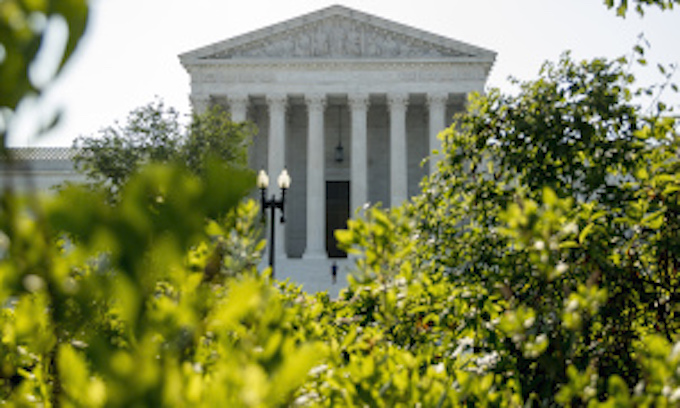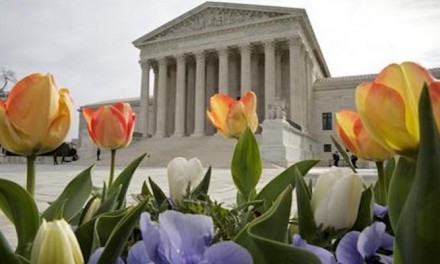The law firm representing a Colorado website designer is making First Amendment arguments before the U.S. Supreme Court after a federal court agreed her free-speech rights are in jeopardy but still upheld a controversial state law.
Lorie Smith, who owns 303 Creative, offers graphic design and website design services in the Denver area. She stumbled into legal trouble, however, in a situation now familiar to much of the public when she challenged an anti-discrimination law because she foresaw a moral conflict over promoting a same-sex wedding.
“Wedding websites offer a natural fit for my skills but in today’s culture that immediately raises the question of promoting not only unions between a man and a woman, but same-sex ceremonies too,” Smith explains. “My religious beliefs won’t allow me to promote the second option. I can’t create a site that would celebrate views contrary to my beliefs.”
That view mirrors the legal fight of Jack Phillips, the Lakewood, Colorado wedding cake designer who turned down a wedding cake order from two men in 2012. The men filed a complaint against the business owner with the Colorado Civil Rights Commission, which sided with them and thus began a lengthy court fight. Phillips lost in court after court until finally, at the U.S. Supreme Court, the justices ruled in 2018 the state commission had treated Phillips unfairly because of blatant anti-religious views among its members.
That decision was 7-2, a lopsided victory for Phillips, but Justice Clarence Thomas (pictured below) complained in his opinion that his fellow justices had made a narrow ruling that avoided the First Amendment issue central to the case.
Phillips has said he does not keep homosexuals and lesbians from entering his bakery, or refuse to sell them products off the shelf, but he refuses to use his artistic talents to design a product, a same-sex wedding cake, that he considers offensive to his religious beliefs.
That argument, however, has failed to win over judges and justices during the six-year legal battle.
Alliance Defending Freedom, which defended Phillips, has now filed an opening brief with the Supreme Court on behalf of Smith. It learned in February the court will hear her appeal.
“If the government has the power to force Lorie to speak messages that she disagrees with,” says ADF attorney Kristen Waggoner, “it can force anyone of us to do so.”
Not only does the Colorado law force Smith to violate her conscience, ADF argues the state law as written does not allow the business owner, on her own website, to state and explain her personal views.
According to ADF, it hopes the nine justices will review the 2-1 ruling by the 10th Circuit and agree the federal judges made what the religious liberty law firm calls a terrible and unprecedented decision. ADF says the two judges agreed that Smith is exercising free speech when she designs a website but concluded Colorado has the right to limit her rights.
The dissenting judge on the 10th Circuit called the Colorado law “Orwellian diktat,” and ADF is hoping the nation’s highest court will agree.
“I am hopeful,” Smith tells AFN, “that they will rule in favor of free speech for all artists and ultimately for everyone.”
—-
Copyright American Family News. Reprinted with permission.



















SOMETHING Is definitely rotten in COLORADOISTAN!
The Court has to establish once and, for the most part, all time what the First Amendment entails. To begin with, the notion of separation of church and state does not exist except in a letter by Thomas Jefferson to a convention of a church body in Connecticut that the government would not impose a state church on the people such as the Church of England or Catholicism as in Italy Spain and France. Freedom of religion is really the freedom to think and make decisions, the left and progressives abhor this notion and in spite of ‘Congress shall make no law’ they keep trying to define what the limits of religion are. They particularly target Christianity as it is dominant in America as opposed to Judaism, Islam, and several growing Eastern religions which can still be affected by their animosity. Religion is not confined to a set time in a church, synagogue, mosque, temple, sacred mountain; it is practiced throughout life. The secularism of the left, of progressives, is what they want to replace this freedom to think with. These people believe only in themselves which is to believe in fools!
Let’s just hope they don’t WUSS OUT on this one.